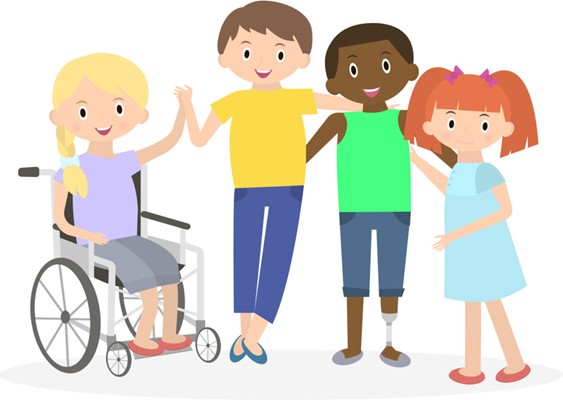As a growing number of children and youth with disabilities are integrated into general education classrooms, it is essential for teachers to create multiple opportunities while boosting social interactions with one another, thus promoting inclusive behaviors in the classrooms and communities.
Even though learners with disabilities desire to fit in, they often experience daily social rejection and struggle socializing with their peers. Limited knowledge on disability issues leads to feelings of discomfort, fear, and awkwardness, resulting in stereotypes and misperceptions.
Substantial progress has been made to integrate students with disabilities into general-education classrooms. However, the traditional teaching-learning material is not appropriate for children with or without special needs, as the student becomes a passive acceptor of knowledge.
One approach to support the development of positive attitudes towards individuals with disabilities is through the use of comics. What makes comics so unique? Their uniqueness mainly depends on the way comics use text and images to engage readers, actively including them in situations.
Children often choose comic books over traditional texts; the combination of visual graphics and textual information can help them to better process the topic at hand. Furthermore, there is strong evidence for the use of comics as a means through which an understanding, appreciation, and acceptance for individuals with disabilities is fostered. This is mainly due to the fact that comics invite the former group of readers to enter the world of disabled people, experiencing the issues these individuals face in their daily lives. Moreover, comic superheroes influence children, teaching kids to support others or allow them to find their strengths and develop morals. Reading comics in this manner can be included in school curricula, making the stories of people who have been silenced or overlooked visible.

When it comes to disabled children’s points of view, comic books positively affect them as well. Stories featuring children with disabilities can be incredibly helpful in developing self-esteem, self-awareness, and literacy skills. When reading is complex, a kid feels unmotivated to do it; so, a comic book with vivid colors, sketches, and relatable characters can be particularly appealing to kids with learning difficulties. Unfortunately, not enough comic books celebrate the uniqueness of disabilities, resulting in more and more parents creating their own comic stories for their kids. Led Bradshaw is a living example of a father who made a comic book, “Jake Jetpulse” after his son was diagnosed with an autism spectrum disorder.

Source: https://bobotouch.com/watch-dad-creates-comic-book-for-son-with-autism/
Led managed to combine his son’s homework with their love for superheroes, resulting in better academic performance but also greater communication skills.
To sum up, comics literature is an innovative, non-formal strategy for educating students about disabilities, developing caring and respectful communities within and beyond the classroom. Moreover, disabled students will finally see themselves reflected in books, allowing them to relate on a more personal level. For all these, disability and comic designs could be a great educational option for teachers, educators or parents, growing empathy and social development.
References :
- Ewa KcGrail, Alicja Rieger, (2013), Increasing Disability Awareness through Comics Literature, Electronic Journal for Inclusive Education, https://corescholar.libraries.wright.edu/cgi/viewcontent.cgi?article=1157&context=ejie
- Camila Matuk et al., (2019), How Do Teachers Use Comics to Promote Engagement, Equity, and Diversity in Science Classrooms?, University of Nebraska – Lincoln, https://digitalcommons.unl.edu/cgi/viewcontent.cgi?article=1004&context=museumvirus
- Ewa KcGrail, Alicja Rieger, (2015), Increasing Understanding and Social Acceptance of Individuals With Disabilities Through Exploration of Comics Literature, ScholarWorks Georgia State University
- Brent Moeshlin, (2020), How Comic Books Can Inspire Kids with Disabilities, Quality Comix, https://www.qualitycomix.com/learn/children-with-disabilities-and-superheroes-in-comics